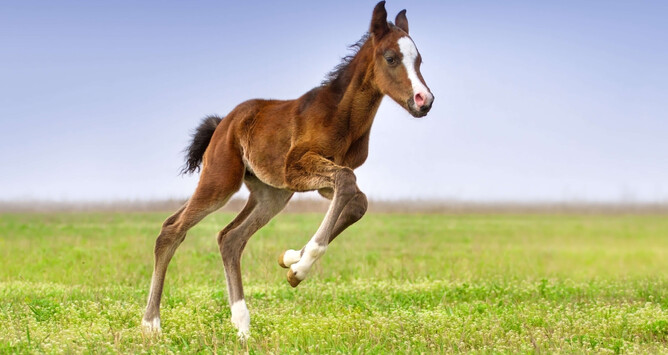What vaccines do I need for my pregnant mares?
Following the conclusion of the breeding season, it’s now time to make sure that your mare is appropriately protected during her pregnancy. There are three main vaccinations that we are concerned about during pregnancy.
Tetanus
All broodmares (and horses in general) should be vaccinated against tetanus. Tetanus is a painful disease that affects the neurological system and is very often fatal. The tetanus vaccination requires two initial vaccinations spaced 4 weeks apart and then a booster after one year. For our broodmares, it is recommended that mares are given a booster vaccination 4 weeks prior to their foaling date. This ensures a good level of tetanus antibodies in the colostrum, giving the foal adequate protection in its first weeks of life. It also protects the mare during the post-partum period. The foal may still require a TAT if they do not receive adequate colostrum.
Strangles
Strangles is an upper respiratory tract infection that causes recognisable abscesses under the jaw and can have significant long term effects on your horse. Strangles is also quite a contagious disease. Having your mare vaccinated will reduce the risk both during the breeding season when she may be mingling with different horses and can also be used as a booster vaccination 4 weeks prior to foaling, again to offer protection to the foal from birth through antibodies in the mare’s colostrum. The initial course of vaccination requires 3 doses, spaced 2 weeks apart and then an annual booster. This can be done in conjunction with the tetanus vaccination.
Herpes Vaccine/Pneumabort K
Herpes virus is often connected to upper respiratory tract infections in young horses in particular, but Equine Herpes Virus 1 and 4 can also cause abortion in pregnant mares when they are infected with the virus during pregnancy. Many late term abortions are due to the herpes virus. Pneumabort K vaccinates again EHV1 and helps to protect against abortion. Pregnant mares require vaccination at 5, 7 and 9 months of pregnancy and this should be complete during each pregnancy to ensure protection.
Depending on individual mare and farm circumstances, other vaccinations may be recommended. If you would like to discuss your mare’s vaccination requirements with a vet, please call the clinic on (03) 217 6688.
- Grace Reed

